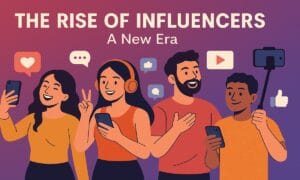Hiring AI engineers is now one of the most important challenges for companies in the United States. With artificial intelligence changing how we live and work, businesses need smart and skilled people to build, improve, and manage AI systems.
But why AI hiring is difficult is something many still don’t fully understand. Whether you’re a startup or a global tech firm, finding the right AI talent is not as simple as posting a job.
There are deep-rooted issues in the AI job market, ranging from a talent shortage in AI to outdated recruitment methods. This article breaks down the 12 biggest problems companies face in AI recruitment, offering insights and solutions that go beyond what most people talk about.
The Global Shortage of Skilled AI Talent
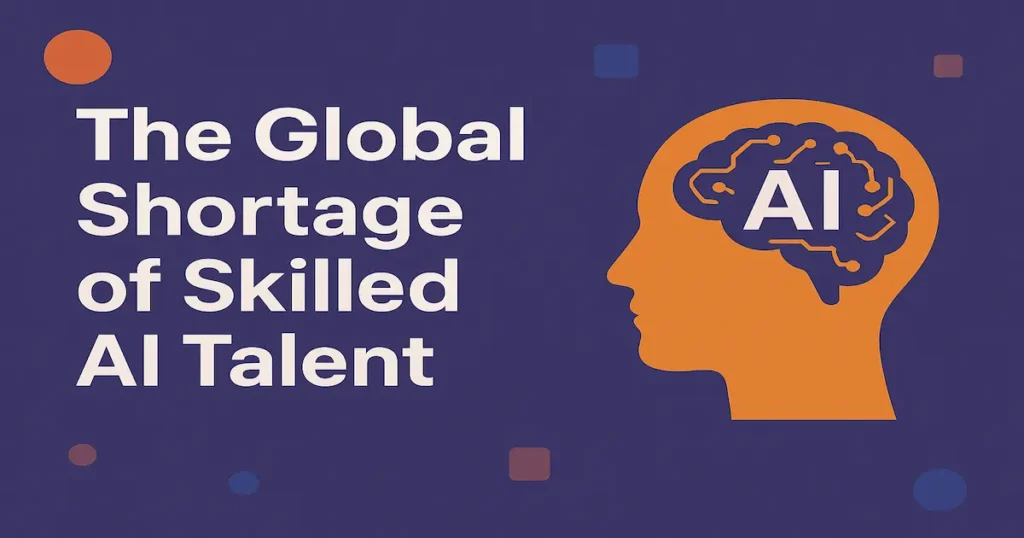
The biggest issue most companies face is the lack of skilled AI professionals. Across the globe, and especially in the USA, there’s a major talent shortage in AI. The number of businesses needing machine learning engineers has grown much faster than the number of people with the right skills.
To give you an idea of how serious this is, here’s a quick look:
| Year | Job Openings in AI | Qualified Candidates |
|---|---|---|
| 2018 | 300,000+ | 100,000 |
| 2023 | 800,000+ | 250,000 |
This gap delays projects and puts pressure on current teams. It often leads to rushed hiring, which causes more problems later. That’s why understanding AI skill requirements is so important when building your team.
Misunderstanding of AI Role Requirements
Another major challenge is that many companies don’t actually know how to hire AI engineers. AI is a wide field that includes deep learning expertise, data science, software engineering, and more.
Without clear goals, employers post roles without understanding what kind of expert they truly need.
For example, a company may think they need a machine learning engineer when what they really need is someone skilled in natural language processing. This confusion wastes time, budget, and effort.
To avoid this, companies must learn the differences between each AI specialty before they begin hiring.
Vague and Misleading Job Descriptions
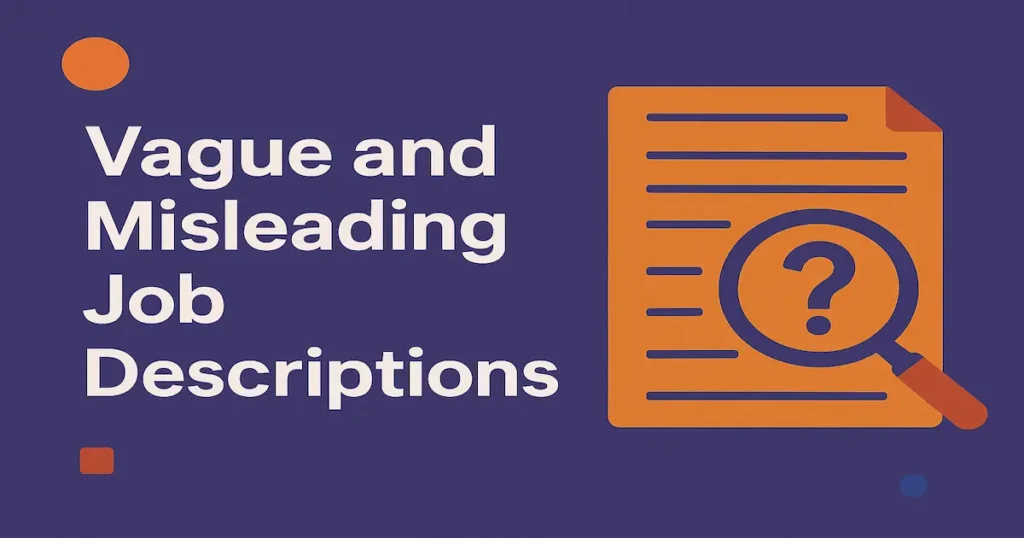
Creating AI job descriptions that are clear and detailed is key. Many companies make the mistake of writing vague or generic postings. They often list every possible skill, hoping the right person will apply. But this strategy only attracts underqualified applicants.
Strong AI job descriptions should include clear project goals, required tools or platforms (like TensorFlow or PyTorch), and what kind of team the new hire will join.
A well-written job post shows that the company knows what it’s doing, which also builds trust with top talent.
Challenges in Evaluating Technical Depth and Real-World Skills
When it comes to evaluating AI engineer candidates, traditional hiring methods often fall short. Many companies use outdated tests that don’t match real-world tasks. These fail to check for hands-on AI experience or practical AI skills, which are more valuable than just academic knowledge.
Technical skill assessment must go beyond a simple quiz. For example, a real-world challenge might involve cleaning raw data, building a small AI model, or explaining the model’s results.
These tasks give you a much better idea of what a candidate can really do. This is how evaluating AI competence should be done.
Skyrocketing Salary and Benefit Expectations
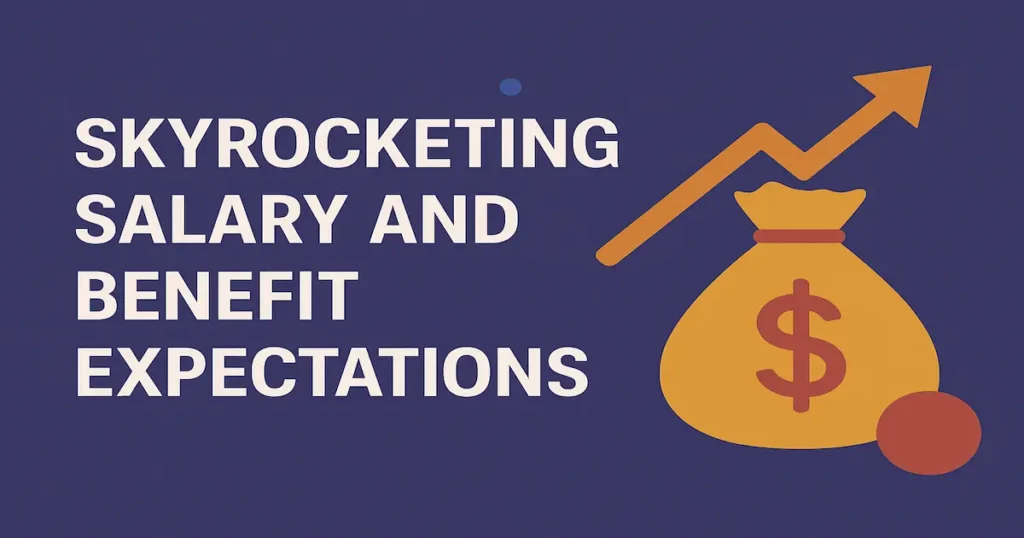
As the demand for AI talent grows, so do AI engineer salary expectations. Big tech companies offer six-figure salaries, stock options, and flexible perks. Smaller companies often struggle to match these numbers, especially startups with limited funds.
Here’s a snapshot of average AI salaries in the USA:
| Role | Average Salary |
|---|---|
| Junior AI Engineer | $110,000 |
| Mid-Level ML Engineer | $145,000 |
| Senior Deep Learning Expert | $200,000+ |
To stay competitive, businesses can offer flexible compensation packages in tech. This might include remote work, training budgets, or fast-track career growth in AI. These benefits can make your offer more appealing even if your salary isn’t the highest.
Inability to Identify Red Flags During Interviews
Hiring managers often struggle to see warning signs during interviews. This is mostly due to a lack of technical knowledge or poor preparation. Without knowing interview questions for AI engineers, they miss clues that could show the candidate is a poor fit.
Some red flags include overuse of buzzwords, vague answers to technical questions, or avoiding code walkthroughs. Bringing in hiring technical experts during the interview process helps spot these early. This ensures you don’t waste time with the wrong person.
Lack of AI Literacy in Hiring Teams
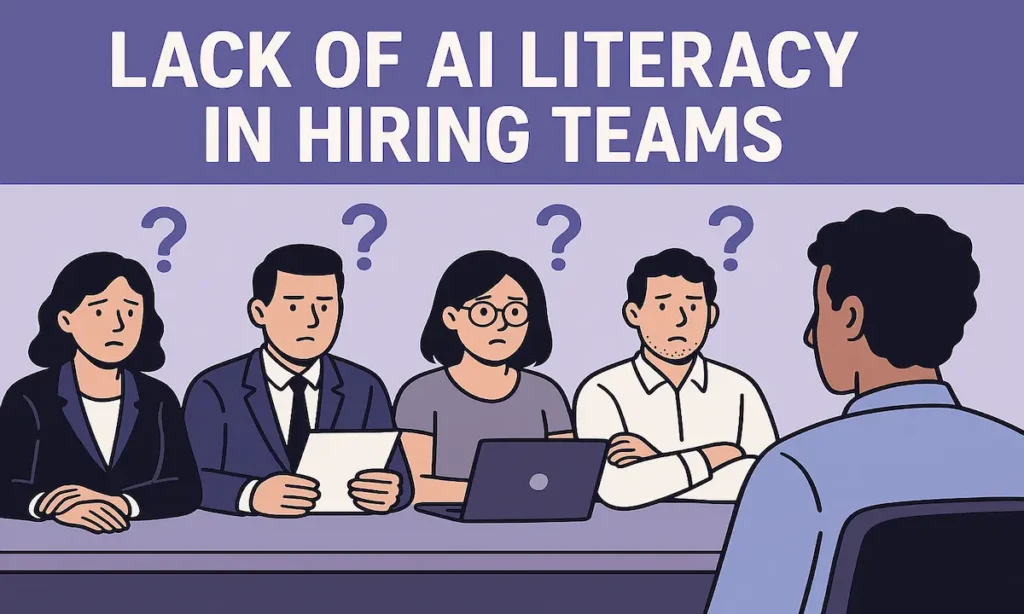
A surprising problem is the low level of AI understanding among HR and leadership teams. This creates major HR challenges in AI hiring. Many HR teams rely only on resumes or keywords without knowing what real AI work looks like.
When hiring AI engineers, HR needs basic training in AI fields. This helps them screen applicants more accurately and ask better questions. It also bridges the gap between what engineers do and what companies think they do.
Cultural Misfit and Soft Skill Overlook
One of the most overlooked issues is AI team culture fit. A highly skilled engineer might still fail if they can’t work with others. AI projects need communication, cooperation, and quick learning. These are often called “soft skills,” and they matter just as much as technical skills.
Without assessing these, teams can break down. A good hire should not only code well but also be open to feedback, handle deadlines, and understand team goals. Companies must check for both hard and soft skills to ensure long-term success.
Retaining AI Talent Amid Fierce Competition
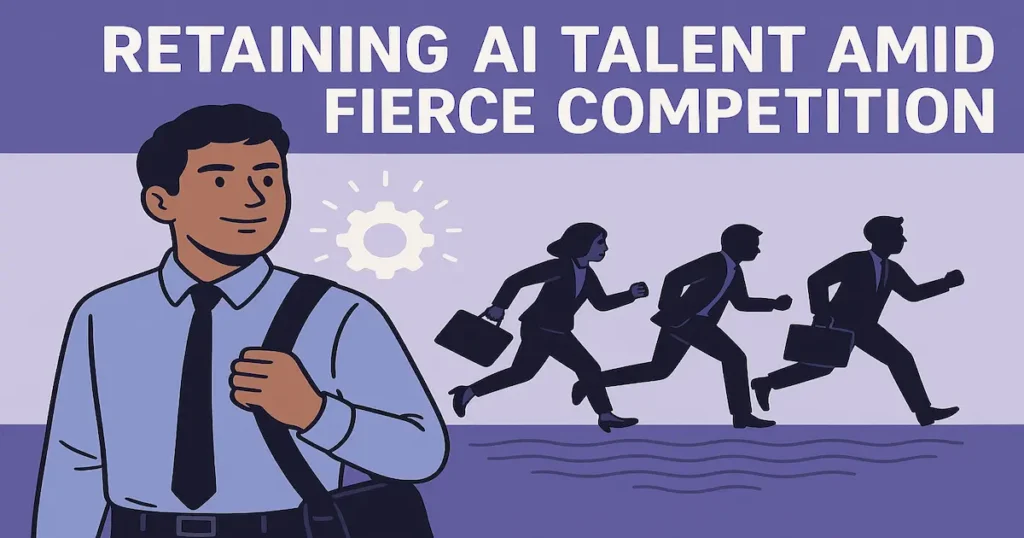
Even after hiring, keeping top talent is another major issue. Retaining AI talent in companies is hard because so many firms are chasing the same people. Without strong support, AI engineers often leave within a year.
Good retention needs more than just money. People want purpose, growth, and challenges. Companies should offer regular check-ins, training sessions, and space for innovation. These steps help in retention of tech employees and make them feel valued.
Overemphasis on Degrees Instead of Demonstrated Ability
Many employers still focus too much on academic degrees. But today, open-source AI contributions, coding competitions, and real projects matter more than classroom knowledge. Great candidates often come from non-traditional backgrounds.
How to hire AI engineers with real skills? Look for portfolios, GitHub accounts, or project demos. These give a better sense of the person’s ability than a diploma alone. Practical AI skills always beat theory in real-world jobs.
Limited Access to Diverse and Inclusive Talent Pools
Inclusive AI hiring is not just a good thing—it’s essential. Still, many companies fail to reach diverse AI talent. They rely on the same schools, cities, or networks and end up hiring people who all think the same way.
Better results come from casting a wider net. Hiring platforms that focus on diversity, coding bootcamps, or partnerships with inclusion groups can help. A more diverse team builds better, fairer AI systems and brings in fresh ideas.
Using Outdated or Generic Recruitment Channels
A final but serious problem is using old-school job boards or general recruiters. AI talent lives in tech communities, not on basic hiring platforms. So, companies using only those tools often miss out.
Working with AI recruitment agencies or engaging in GitHub, Kaggle, and AI Slack groups is smarter. You’ll find candidates with real skills, deep interest, and more passion for the field. These are the people who can help onboarding AI engineers successfully and drive long-term value.
Conclusion
Understanding the problems companies face in AI recruitment is the first step toward solving them. From the global shortage of skilled AI professionals to the importance of AI job descriptions, every part of the hiring process matters.
U.S. companies must adapt by learning best practices for hiring AI developers, using better tools, and creating a team-friendly environment.
The path to building a strong AI team isn’t easy, but it’s worth every effort. Smarter hiring means better products, faster innovation, and a future-proof business. If you’re serious about growing in the AI space, start fixing these gaps today.
Frequently Asked Question:
Is there a demand for AI engineers?
Yes, there’s a massive demand for AI engineers worldwide, especially in the U.S., driven by the rise of automation and advanced data technologies.
How to hire an AI engineer?
Clearly define your AI project needs, create targeted AI job descriptions, and use niche platforms or AI recruitment agencies to find skilled talent.
Which companies hire AI engineers?
Major tech firms like Google, Amazon, Microsoft, and startups in finance, healthcare, and retail frequently hire AI engineers to power their innovations.
How much to hire an AI engineer?
AI engineer salary expectations in the U.S. typically range from $100,000 to $200,000+ annually based on experience and technical expertise.
How much does 1 AI cost?
Creating a custom AI solution can cost anywhere from $10,000 to $300,000+, depending on its functionality, scope, and required deep learning expertise.









